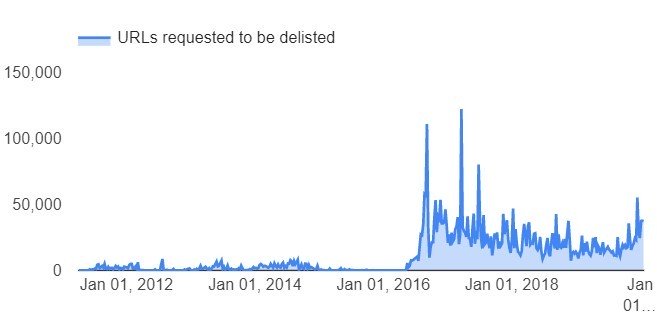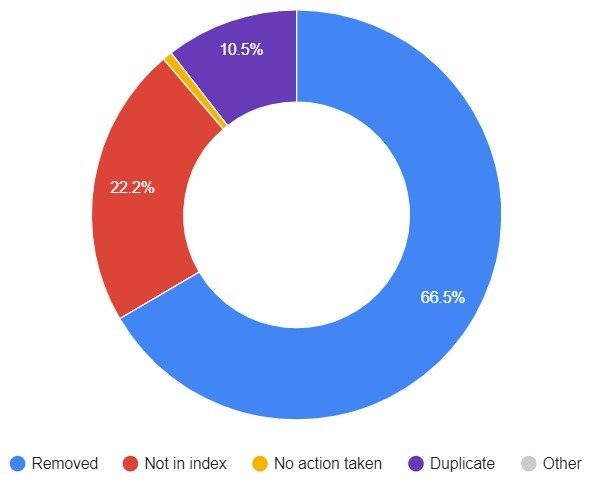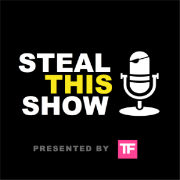US Congress Starts Review on Possible Modernization of the DMCA
mercredi 12 février 2020 à 19:45 When the Digital Millennium Copyright Act (DMCA) was introduced in 1998, few people could of imagined the online developments of the next two decades. Nevertheless, the law remains in place today and at times, according to some, struggles to keep up with whatever technology throws at it.
When the Digital Millennium Copyright Act (DMCA) was introduced in 1998, few people could of imagined the online developments of the next two decades. Nevertheless, the law remains in place today and at times, according to some, struggles to keep up with whatever technology throws at it.
The DMCA is a complex beast but some of its key goals are to outlaw the production and distribution of tools and services designed to circumvent DRM systems controlling access to copyright works (Section 1201 anti-circumvention) and limit the liability of online service providers for the actions of their users (Section 512). Particularly in respect of the latter, many copyright holders believe that changes are long overdue.
With the U.S. Copyright Office already conducting its own study into the DMCA, Senator Thom Tillis has launched a new initiative in the Senate Judiciary Subcommittee on Intellectual Property to find ways to modernize the DMCA to better tackle the drastic changes of the past 22 years. Supported by written testimony from a number of copyright experts, the first hearing took place yesterday.
Even at this early stage, it seems clear that while Section 1201 isn’t considered perfect and has its detractors, it is Section 512 that will likely prove the most controversial to address, particularly in respect of notice-and-takedown and related service provider safe harbor provisions. In his testimony, Steven J. Metalitz, who helped to draft the DMCA more than two decades ago, provided his assessment of why the law no longer works as intended.
Metalitz references three ‘V’s as major issues faced by rightsholders today – the volume of infringement; the velocity of infringing activity; and the importance of voluntary arrangements, including licensing and technological collaboration.
“Section 512 in general, and the notice-and-takedown system in particular, implicitly assume a model in which the volume of infringing activity is sufficiently low that human decision making can feasibly be applied on virtually a case-by case basis to decisions about whether to file a notice of infringement, how such notices are to be processed, and what action should be taken in response to them,” Metalitz testified.
“If that model was ever a realistic approach, the huge volume of online infringement soon outstripped it. It was not long before the entire notice-and-takedown process became fully automated on both sides: robots talking to robots to decide the fate of particular disputed postings or links, which themselves had been generated through automated processes.”
Addressing the current velocity of online infringements, Metalitz said the question of how quickly a service provider must act to deal with an infringement complaint to maintain safe harbor is now an issue.
Drafters of the DMCA may not have envisioned a situation where infringing content is not only made instantly available to an audience of millions, but can instantly reappear even following a successful takedown notice, rendering the system pointless, Metalitz said.
“In reviewing section 512, the subcommittee should consider what changes are needed to respond to this vast acceleration in the velocity of online infringement, as well as the ease with which Internet users with even limited tech savvy can carry it out,” he added.
To help address some of these issues, Metalitz hopes that the subcommittee will look at the role of voluntary arrangements between copyright holders and service providers, such as licensing and other mechanisms, that can help to mitigate and manage online infringement, perhaps underpinned by changes in the law.
Given her position as Director of Copyright Research and Policy at the Center For Protection of Intellectual Property, the testimony of Sandra Aistars demonstrated a clear determination towards a tightening of the law, with suggestions on the notice-and-takedown/service provider front proving of particular interest.
“I do not advocate doing away with the protections safe harbors have afforded internet companies, because along with the negative, they have also done much to spur positive developments and creativity on the internet. Nevertheless, I believe that the last twenty two years of applying the DMCA to everyday practice have demonstrated that the marketplace and the courts have eroded the original intent of Congress,” Aistars testified.
“In considering legislation, it will be important to focus on how best to restore those elements of the DMCA intended to foster cooperation between stakeholders. One clear area of legislative reform would be to restore/clarify the original meaning of red flag knowledge.
“Similarly, elements of the DMCA which have received little or no attention — such as the concept of sending notice of infringements by means of representative lists, rather than link by link, and the requirement to accommodate standard technical measures, should be revisited and incorporated more effectively into any new legislation,” she added.
That brings Aistars to the conclusion that notice-and-takedown is for the past and something more permanent should be considered for the future. Legislation that provides incentives for service providers to develop technologies or policies to achieve notice-and-staydown regimes would be favorable, she argued, especially since Europe is moving towards that with Article 17 of the Copyright Directive.
“Some progress has already been made on this in the European Union Digital Single Market Directive, demonstrating not only that this is an achievable goal, but that internet services operating in the EU will already be required to meet such standards,” Aistars added.
But while Aistars suggests that the DMCA needs significant work to be effective in today’s environment, others believe that it is still delivering on its goal to encourage innovation. Any significant change, perhaps in line with the EU’s plans, could hinder that, some suggest.
Professor Rebecca Tushnet of the Harvard Law School works with the Organization for Transformative Works, a user-generated content project with a budget of less than $400,000 per year. It receives 1.12 billion page views per month yet receives less than one DMCA notice per month, most of them invalid.
“Empirical research reveals that most of the internet service providers who rely on §512 are like us: receiving relatively low levels of notices and handling them individually. There just aren’t that many entities receiving millions of notices,” her testimony reads.
“While market pressures and business decisions have led a few large sites like YouTube to more filter-based systems, it is important not to treat YouTube as a model for the internet at large—unless the only online service we want to survive is YouTube.”
Tushnet believes that most beneficiaries of Section 512 are not companies like Google or Facebook. Indeed, if Congress targets these kinds of entities with changes to copyright law, it will only help them dominate the market.
“If Congress changes the DMCA to target Google and Facebook, or because of rogue overseas sites that already aren’t complying with the DMCA to begin with, it will ensure that only Facebook, Google and pirate sites survive, making the problem of market concentration even worse without protecting creators,” Tushnet said.
“Most service providers don’t need and can’t get expensive filtering technology. A mandate for that, whether called ‘staydown’ or something else, would destroy the small and medium entities that are vital to innovation, creativity, and competition on the internet.”
Finally and perhaps unsurprisingly, the thorny issue of dealing with so-called ‘repeat infringers’ is set for hot debate, embedded as it is with Section 512, safe harbor, and its potential effect on regular Internet users. It is certainly on Sandra Aistars’ agenda, up to and including taking the most aggressive measures possible against those accused of infringing copyright via their home connections.
Referencing the recent BMG v Cox case, which dealt with the repeat infringements of BitTorrent users and the failure of the ISP to disconnect them, Aistars expressed disappointment at those who submitted amicus briefs arguing that disconnection would be unfavorable if multiple users in a household had access to an Internet connection.
“Apparently these parties believe high speed internet service is more of a basic human necessity than housing or transportation, which can both be seized under federal forfeiture laws regardless if jointly held,” Aistars testimony reads.
“While I do not suggest that the circumstances under which federal forfeiture is permitted are exactly comparable, surely if the seizure of a jointly owned home or automobile is permissible, disabling internet service must also be under appropriate circumstances. Clearly ISPs have no qualms disabling service for nonpayment, for instance.”
Yesterday’s hearing was just the beginning but for those who want all of the details thus far, the testimonies are available here.
Source: TF, for the latest info on copyright, file-sharing, torrent sites and more. We also have VPN reviews, discounts, offers and coupons.
 The Pirate Bay is widely known for its refusal to remove content based on copyright infringement claims. Those who tried in the past found themselves mocked instead.
The Pirate Bay is widely known for its refusal to remove content based on copyright infringement claims. Those who tried in the past found themselves mocked instead.


 In this episode, we meet Andy Greenberg, senior writer at Wired Magazine and author of
In this episode, we meet Andy Greenberg, senior writer at Wired Magazine and author of  Last November, Canada’s Federal Court approved the first
Last November, Canada’s Federal Court approved the first